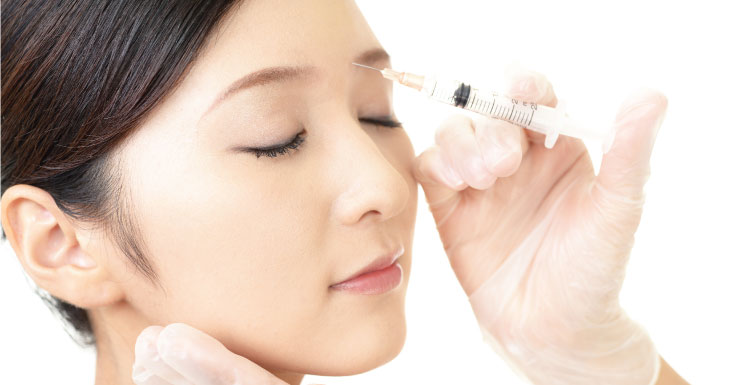Every woman is bound to hear about collagen. Be it promises of plump, dewy, youthful skin, or miracles of a youthful appearance with no signs of aging. Apparently, all of this can be yours if you eat, drink or apply collagen in the form of powder, pills, cream or even injections. Doesn’t it seem a little too good to be true, but what if it’s not?
What is Collagen?
Collagen is basically a molecule found in our bodies. It is a tough, insoluble, fibrous protein that makes up 30% of our total body’s protein. Collagen provides structure and support to our skin, muscles, bones and connective tissues. In the skin, it helps with strength and elasticity.
What Damages Collagen?
Diet, the aging process, and free radical damage can all affect your collagen proteins. As we age, the body produces less and lower-quality collagen, which weakens the skin. Some women also experience a significant reduction in collagen production after menopause, although it’s normal for everyone to experience a decline after the age of 60.
Lifestyle habits that can inhibit collagen production include:
● Sugar and refined carbs: interferes with collagen’s ability to repair itself.
● Excessive sunshine: Ultraviolet radiation (UVA and UVB) can reduce collagen production.
● Smoking and environmental toxins: reduces collagen production that can impair wound healing and lead to wrinkles. Where else pollution and environmental toxins can cause free radical damage.
● Autoimmune disorders: can cause the immune system to attack the body and damage collagen production.
So, What’s All the Hype About Collagen?
Experts believe the reduction in collagen contributes to skin aging. For this reason, many skin care products contain forms of collagen. But before you jump on the collagen bandwagon in your bid to turn back time, here are some things you should know:
Collagen Topical Creams or Serums
The idea of giving your skin more collagen to work with by applying it topically and allowing it to absorb in strategic places, like the face, may seem logical. However, this is not how collagen works.
Firstly, it’s important to understand that your skin’s collagen molecules are big and complex. It’s produced in the skin’s second layer, the dermis. The dermis is a layer deeper than the epidermis (or outer layer), and that’s where most of your collagen is found.
It turns out that these complex molecules are simply too large to sink through the epidermis into the dermis, so, topical creams and gels are made of smaller collagen peptides. Yes, your skin might feel smoother, softer, and your wrinkles may look a little less pronounced, but what you’re seeing is only happening on the skin’s surface. It’s not really a result of replenishing your skin’s collagen.
On top of that (pun intended), collagen-containing creams are not classified as drugs, meaning the claims they may make don’t necessarily have to be scientifically proven. On the other hand, the collagen found in creams or serums isn’t really harmful, so if you like how they make your skin feel, go ahead and use it!
Collagen Supplements
Whether powdered, encapsulated or sold in premixed bottles of collagen water, ingestible collagen faces the same challenge that topical collagen does: huge molecules. They’re simply too large to be absorbed.
Although there is a greater probability of absorption in the digestive tract in the form of smaller collagen peptides, there is no large-scale, scientific study to indicate those little molecules will find their way to your dermis.
Collagen Injections
In this new age, scientists have developed injections to supplement collagen made by the body. Basically, collagen is administered via needles directly into the skin. There are several kinds of dermal fillers, and collagen is one option.
Skin brands claim that these injections can boost the fullness and volume of your face by replenishing the collagen under your cheeks, forehead and chin area. Some call it a lunch-hour procedure, because there is no downtime and minimal recovery involved.
After injections, you’ll notice more radiant, supple, and less scar-apparent skin. These brands also claim that collagen injections can even out stretch marks, due to body size changes, such as with pregnancy or strength training.
But don’t book an appointment just yet! It’s important to note that there are some common side effects of collagen injections which include irritation, redness, bruising, inflammation and tenderness of the skin. Allergic reactions could also occur – usually the aesthetician will do allergy testing a couple weeks prior to the treatment to ensure you aren’t allergic.
The thing is, your body makes collagen naturally by combining amino acids — nutrients you get from eating protein-rich foods, like beef, chicken, fish, beans, eggs and dairy products.
The process also requires vitamin C, zinc and copper. You can get vitamin C by eating citrus fruits, red and green peppers, tomatoes, broccoli and greens. The two minerals can be absorbed by eating meats, shellfish, nuts, whole grains and beans.
Bottom line is, you can choose to eat a healthy, well-balanced diet or join in on the hype and use products that contain or boost the production of collagen in the body. Some of these products may be effective. However, more research is needed.


